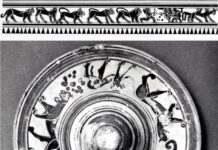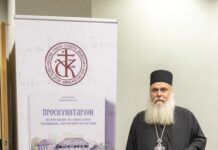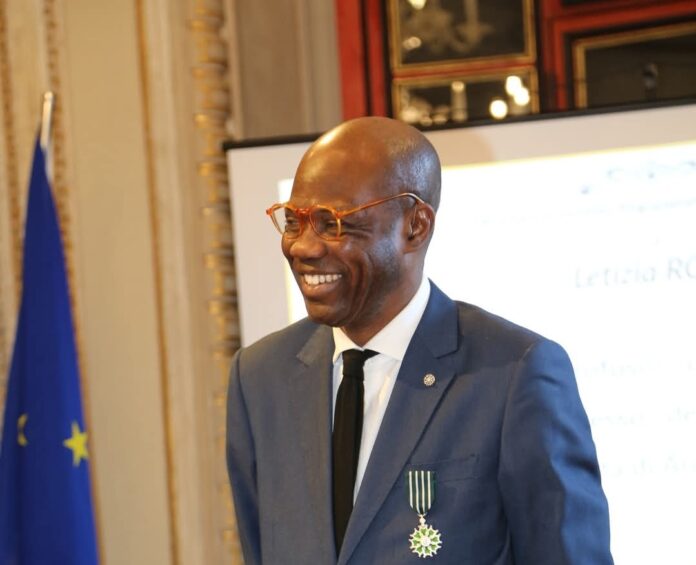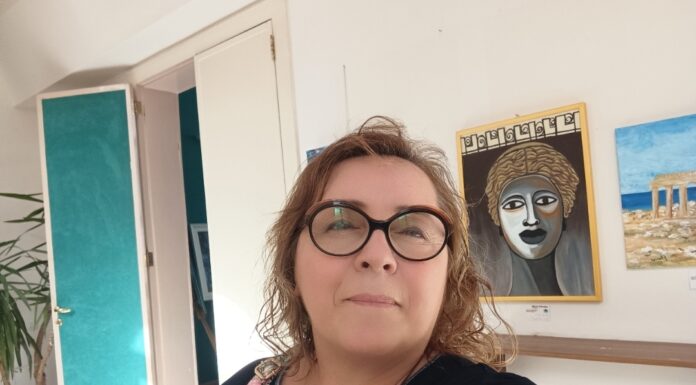Επιμέλεια: Εύα Πετροπούλου Λιανού
“I see the future of literature as positive, as long as writers continue to engage with topics such as ecology, discrimination, femicide, racism, wars, peace, poverty, exploitation, and social issues”
Cheikh Tidiane Gaye, an Italian-Senegalese citizen, is an internationally renowned poet, writer, and professor of philosophy and humanities. With numerous works translated into several languages, his publications are also the subject of academic research. He is the president of the International Leopold Sedar Senghor Academy and the International Poetry Prize bearing Senghor’s name. He is the founder of the Literary Prize for Poetry and Fiction “Città di Arcore” in Italy and a member of various academies worldwide. Living in Italy, Gaye is a poet who builds bridges between cultures, addressing social, cultural, and political issues in his works. His commitment to peace and human rights is a constant in his writing, reflecting a deep dedication to confronting global challenges and promoting understanding among peoples.
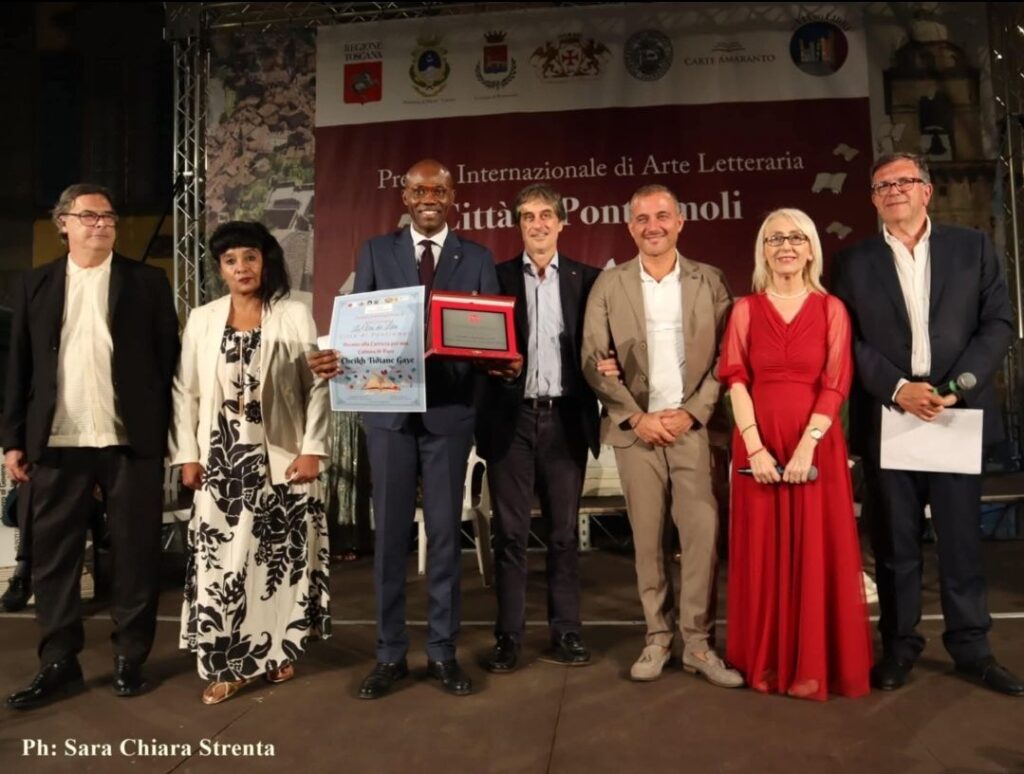
Please share your thoughts about the future of literature. When u start writing?
I am 54 years old, and I started writing at the age of 17. I won my first award at that age. In a world that is constantly changing, I believe writing has the duty to address important themes that speak about humanity. I see the future of literature as positive, as long as writers continue to engage with topics such as ecology, discrimination, femicide, racism, wars, peace, poverty, exploitation, and social issues. These are just some of the many themes literature must tackle to give a voice to the voiceless. The future of literature depends on us, poets and writers, who are called to defend humanity.
The Good and the Bad. Who is winning in nowadays?
Seeing wars in so many countries is a defeat, the greatest failure of our time. While technology and science certainly play an important role, they are not enough. Evil often prevails over good in our world, and the sense of humanity is increasingly overshadowed by the pursuit of glory, wealth, and economic power.
In addition to writing, I am also an activist, promoting peace by traveling across Italy to plant the Olive Tree of Peace. The poet must die for a noble cause. Writing alone is not sufficient; it is through action that we can truly make a difference. Through our works and our commitment to change, we must continue to denounce the injustices of the world and work towards a future where peace and humanity come first.
How many books have you written?
And where can we find your books?
So far, I have published 14 books, including novels, essays, and 8 poetry collections. I have also written numerous scientific essays published in academic journals. My books are available on major online platforms and have a regular distribution. Additionally, I have several poems included in anthologies and translated into various languages. It is a great honor to see that my writings are being appreciated in other countries.
I would also like to add that I am the president of the International Leopold Sedar Senghor Academy and the president of the International Poetry Prize named after him. I am also a member of various literary award juries. I have the privilege of being part of over 10 academies worldwide, and I hold the title of Knight of the Arts and Letters of the French Republic and Ambassador of Peace.
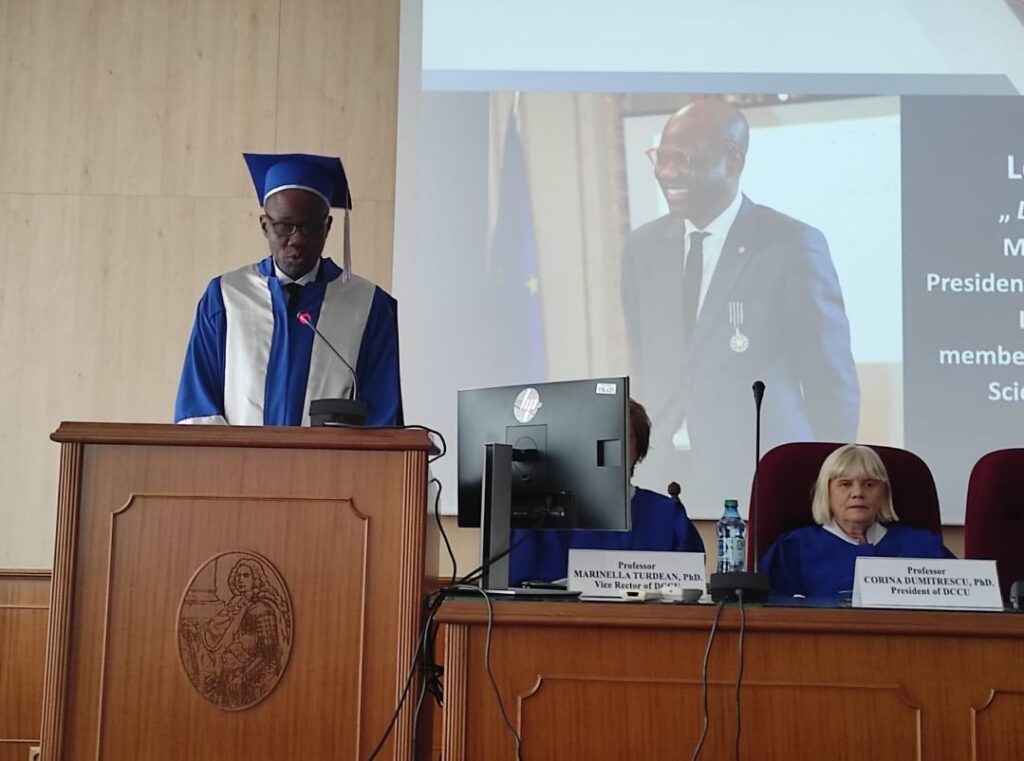
The book. E book or Hardcover book
What will be the future?
New technologies will change the world, and gradually, we must adapt to the e-book format as well. Therefore, the future certainly includes this digital form. I’ve already started: as a publisher, I founded Kanaga Edizioni, and every book we publish is released in both e-book and hardcover formats
A wish for 2025. A phrase from your book.
And a book you like
I read a lot, and it’s hard for me to choose a favorite book because there are so many authors with whom I identify. From Italian literature to French literature, and from African literature in general to Senegalese literature in particular. I appreciate a good book, one written with elegance, and in my mental garden, I cultivate various authors who flourish in my thoughts. A quote from my book that I often repeat, related to the theme of peace, is: “Peace is built, not preached.”



